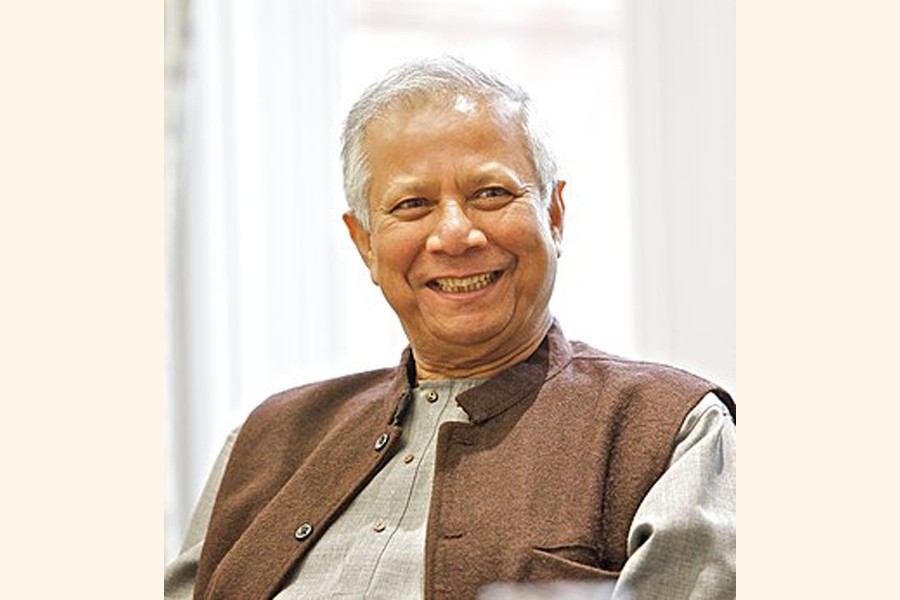
Published :
Updated :

Since the early stages of Paris's bid for the 2024 Olympics, the city has benefited from the guidance of Nobel Peace Prize winner Muhammad Yunus, renowned for coining microcredit in Bangladesh. Although not a sports enthusiast, Yunus was drawn to the project in 2016 after a dinner invitation from Paris Mayor Anne Hidalgo.
He advised that every decision should consider its social purpose, incorporating both social responsibility and environmental consciousness into the domain of the Games, a stance that stands in stark contrast to the usual focus on mega-projects and corporate sponsorships in the Olympics. "I said to them the simplest thing you can do, before you make any decisions about allocating funds, is ask 'does this item have any social purpose?'" he said. "If it doesn't, not a penny should be allocated," he urged.
Professor Yunus recognized the opportunity to address the issues facing humanity and advance socially conscious business practices in the context of Paris's global prominence. He said, "The minute Paris does something, it becomes globally interesting." "The general public is aware of Paris, their reputation for creativity, their history, and their respect."
Following Yunus's powerful speech, Anne Hidalgo, the Mayor of Paris at the time, extended an invitation to work with him on an enormous project for the 2024 Olympics.
The ESS 2024 initiative was a result of this partnership, which aimed to reserve 25% of the Games' contracts for local very-small and small enterprises, as well as structures within the social and solidarity economy, and allocate 10% of working hours to individuals in work-integration schemes.
This approach sought to benefit the local community by offering employment and business opportunities to those often excluded from traditional economic practices. In 2017, Yunus joined Hidalgo and French President Emmanuel Macron in Lausanne to support Paris's bid for the Olympics. Their bid was accepted, and Paris was given the 2024 Games in honour of Yunus's vision. After that, the task became not just planning the event but also making sure that every choice and expense was in line with the project's responsibilities to the environment and society.
Witnessing the opening ceremony of the Paris 2024 Games, Yunus's vision has galvanized into tangible results. The Games have set new standards for sustainability and social responsibility.
More than 3 million hours of labour have been incorporated into the construction of critical venues such as the Olympic Village, the Aquatic Centre, and the Arena. Four thousand five hundred individuals have found employment through these contracts, making up 12% of all hours worked. This initiative significantly advances labour integration.
One of the most outstanding achievements is the Olympic Village. Unlike the high-rise complexes seen in previous Olympics, the Paris 2024 Village is composed of forty low-rise structures on a renovated brownfield site in a traditionally underserved district of northern Paris.
This design reflects Yunus's commitment to sustainable urban development. The village is not just a temporary facility; as part of the redevelopment plan, it will include new metro lines, schools, and parks. Moreover, 40% of the 2,800 apartments will be converted into social and student housing after the Games, ensuring lasting benefits for the community.
He also advocated for including social businesses in public tenders for services such as catering. By prioritizing these enterprises, the organizing committee encouraged large corporations to partner with socially focused businesses, facilitating a collaborative environment that broadened participation and extended the impact of Yunus's vision.
During the 2024 Games, Paris honoured Yunus with Place du Professeur-Muhammad-Yunus on July 22. Located in the 18th arrondissement, near the Adidas Arena, the square celebrates Yunus's contributions to the city's Olympic bid.
Despite the five-year wait rule, his exceptional impact led to this tribute, reflecting his humanist ideals. In an interview, Yunus expressed his astonishment and delight at having a public space in Paris bearing his name. Along with being a sign of his achievement, he said that the square makes his family, friends, and the Bangladeshi community proud.
For a significant number of Bangladeshis travelling to Paris, the square will represent the potential for achievement and the worldwide impact that can arise from modest beginnings.
The occasion demonstrates both his work's influence and the societal utility of sports. He intended to attend many events, especially soccer matches, which are especially important to him because of how much his nation loves the game.
His involvement in the Paris Olympics showcased his belief in the potential of sports to drive social change and promote global solidarity. The Paris 2024 Games, ornamented by Yunus's vision, stand as a model for future international events, illustrating that it is possible to harmonize grand spectacles with social and environmental responsibility.
As the Olympic flame illuminated Paris, it also highlights the brave legacy of Professor Yunus's pioneering efforts, showcasing how innovative thinking can metamorphose even the most prestigious global events into synergists for positive change.
raiyanjuir@gmail.com


 For all latest news, follow The Financial Express Google News channel.
For all latest news, follow The Financial Express Google News channel.